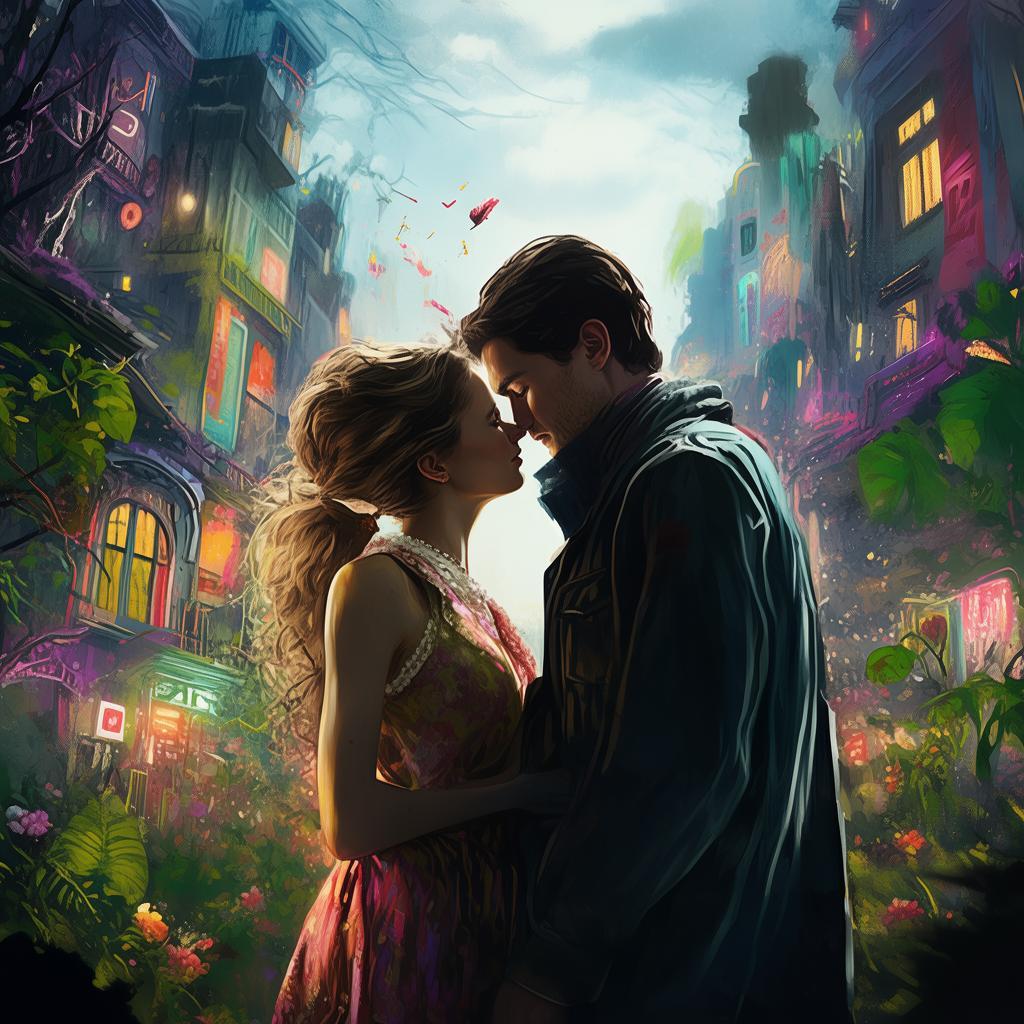The Elysian Lament: Cyrus' Descent
In the ancient land of Greece, where the gods and mortals danced under the same sky, there was a man named Cyrus. His life was a tapestry woven with threads of triumph and tragedy, love and loss. He was a warrior, a man of honor and courage, but his heart was a vessel that bore the weight of a love so profound, it transcended the boundaries of time and space.
Elysium was the love of Cyrus' life. They had met in the lush fields of the living, amidst laughter and the sweet melody of a lute. Theirs was a love that defied the gods themselves, a love that could not be contained by the world as they knew it. But as fate would have it, Elysium met an untimely end, and with her, a piece of Cyrus' soul was torn away.
The gods took notice of Cyrus' sorrow. Hades, the ruler of the Underworld, had compassion for the man's suffering and offered him a chance to retrieve his love. If Cyrus could prove his worth and endure the trials of the Underworld, Elysium would be his once more, and they would live out their days together in the eternal peace of the Elysian Fields.
The journey began as Cyrus stepped into the realm of the dead, where shadows clung to every surface and the air was thick with the scent of mortality. He was greeted by Charon, the ferryman who transported souls across the River Styx. "Thou must pay to cross," Charon said, extending his hand for the coin.
Cyrus, without hesitation, handed over the silver coin, his resolve unwavering. "I seek my love, Elysium," he declared. Charon nodded, his eyes reflecting the harsh reality of the Underworld. "Then follow me."
The ferry glided across the river, and Cyrus felt a chill creep over him. He took solace in the thought of Elysium, of her laughter and her touch. The ferry landed on the shore, and Charon stepped off, gesturing for Cyrus to follow.
The first trial came in the form of the Fates, the three sisters who wove the tapestry of life and death. "To reach Elysium, you must face the threads of fate," they said. Cyrus stood before them, a tapestry of his own life in his hands. He had to choose which threads would guide his path to Elysium.
With each thread he chose, Cyrus felt the weight of his decisions pressing down upon him. He selected threads of courage, love, and loyalty, for these were the threads that bound him to Elysium. The Fates nodded, and he continued on his way.
The second trial was the fields of Asphodel, a desolate place where the souls of the unrequited lovers wandered in eternal circles. Cyrus, amidst the wailing of lost spirits, found a single soul, a woman who had loved a man who had forgotten her. "I have loved you," she cried, "but you have left me here, alone."
Cyrus listened, his heart heavy. He realized that love, once lost, could never be retrieved, but he also understood that it was the memory of love that sustained the soul. He consoled the woman, and she found solace in his words.
The third trial was the labyrinth of the Minotaur, a place of endless twists and turns. Cyrus, armed with the courage and love he had chosen, ventured into the labyrinth. He faced the Minotaur, a creature of fury and rage, and with a swift strike, he defeated the beast.
The Minotaur's defeat was a victory for Cyrus, but it was also a reminder of the many foes he had faced and would continue to face. He knew that the Underworld was not just a place of trials but a place of reflection and growth.
The fourth trial was the realm of Hades himself. The ruler of the Underworld stood before Cyrus, a figure of power and mystery. "You have proven your worth, but you must face the final trial," Hades said. "The river Lethe, where the souls forget their past, flows here. To reach Elysium, you must drink from the river and forget all that you have learned."

Cyrus stood at the edge of the river, the water shimmering like liquid silver. He looked down, and for a moment, he was lost in its depths. But then he remembered Elysium, her laughter, her touch. He took a deep breath and stepped forward, his hand reaching out towards the river.
As he took the first sip, he felt the pull of the river, the weight of his past, his love, his trials. But then, as quickly as it came, the river released him. He looked up, and there before him stood Elysium, her eyes shining with the same love that had once filled his own.
They embraced, and as they did, Cyrus knew that he had faced the Underworld not just for himself but for Elysium. They had faced the trials together, and now they would face the future as one.
The journey through the Underworld had not only brought Cyrus closer to Elysium but had also transformed him. He had become a man of wisdom and strength, a man who understood the depth of love and the power of the soul.
In the end, Cyrus and Elysium returned to the living world, their love now eternal. They lived out their days in the Elysian Fields, where their laughter echoed through the valleys and their love was a beacon to all who believed in the eternal bonds of the soul.
And so, the tale of Cyrus and Elysium became a legend, a story of love that could not be destroyed by the passage of time or the trials of the Underworld. It was a story that would be told for generations, a testament to the power of love and the resilience of the human spirit.
✨ Original Statement ✨
All articles published on this website (including but not limited to text, images, videos, and other content) are original or authorized for reposting and are protected by relevant laws. Without the explicit written permission of this website, no individual or organization may copy, modify, repost, or use the content for commercial purposes.
If you need to quote or cooperate, please contact this site for authorization. We reserve the right to pursue legal responsibility for any unauthorized use.
Hereby declared.









